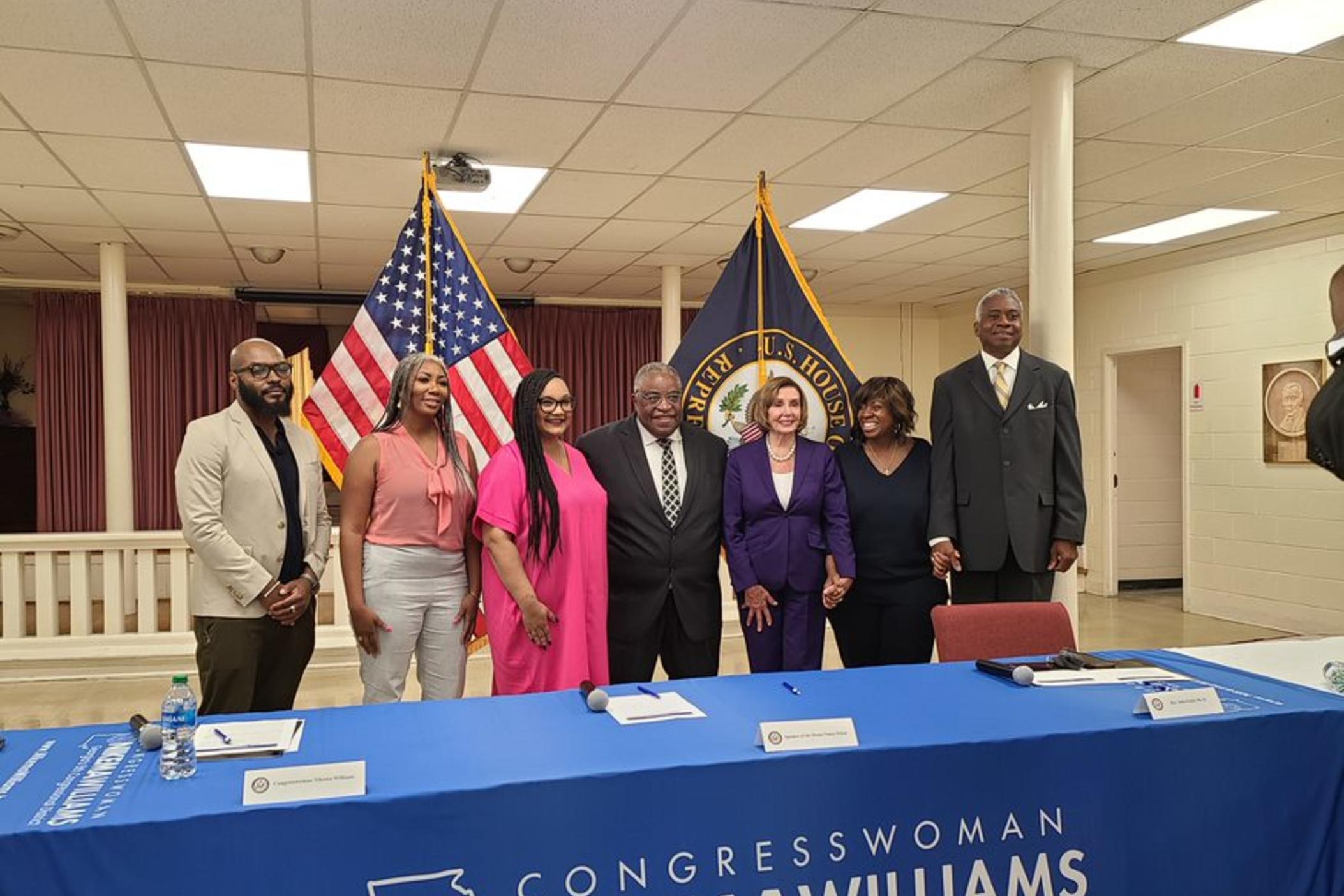Section Branding
Header Content
Federal funds offer green solutions for divided Atlanta neighborhoods
Primary Content
Residents of Atlanta’s Sweet Auburn neighborhood are looking for solutions after facing decades of environmental harm caused by a highway dividing the neighborhood in the 1950s. GPB’s Amanda Andrews explains how funding from the Inflation Reduction Act could help.
Kevin D. Jackson’s family has attended Wheat Street Baptist Church in Atlanta's Sweet Auburn Historic District going back five generations. His grandparents first moved to the area in 1917.
Sweet Auburn was one of many neighborhoods divided after the 1956 Federal Highway Transportation Act, which allowed for the construction of Atlanta's Downtown Connector in 1962. The joining of Interstates 75 and 85 increased traffic through the neighborhoods, creating higher temperatures and lower air quality, affecting the health of nearby residents.
The Inflation Reduction Act, signed into law Aug. 16 by President Biden, includes $3 billion in climate and environmental justice grants to address the damage done to divided neighborhoods and to support new community led projects.
Recently, Jackson met with community leaders, U.S. Rep. Nikema Williams and U.S. House Speaker Nancy Pelosi to discuss how federal funding could create solutions for the decades of disruption caused by the highways. The roundtable also included input from community leaders LeJuano Varnell, Cheneé Joseph, and Christy Davis Jackson.
Kevin Jackson believes the new bill can’t turn back the clock but grants can help address current issues.
“The growth of Atlanta as a whole is not going to go back to what it was in 1956," he said. "So what can we do and what can this act be used to do to turn back things like, you know, the climate control, the traffic, the emissions?"
The Inflation Reduction Act provides funding for Georgia to address climate issues through electric vehicle incentives, energy efficient business upgrades, and tree planting projects.
Congresswoman Williams said she knows many communities in her district faced the same division when Interstate 20 was built between 1958-1980, including the Summerhill and West End neighborhoods.
A constituent called her office to talk about the experience.
“She told us how I-20, the Interstate that connects Georgia to Alabama and further west, took over half of her family's property. Land that they called home since 1909,” Williams said. "Now, when she looks out of her kitchen window, she's looking at a highway.”
Williams encouraged community leaders to apply for the Reconnecting Communities Pilot Program grant online. The program funds projects which improve access, mobility, and economic development in areas where highways have been barriers. The deadline to apply is Oct. 13, 2022.


